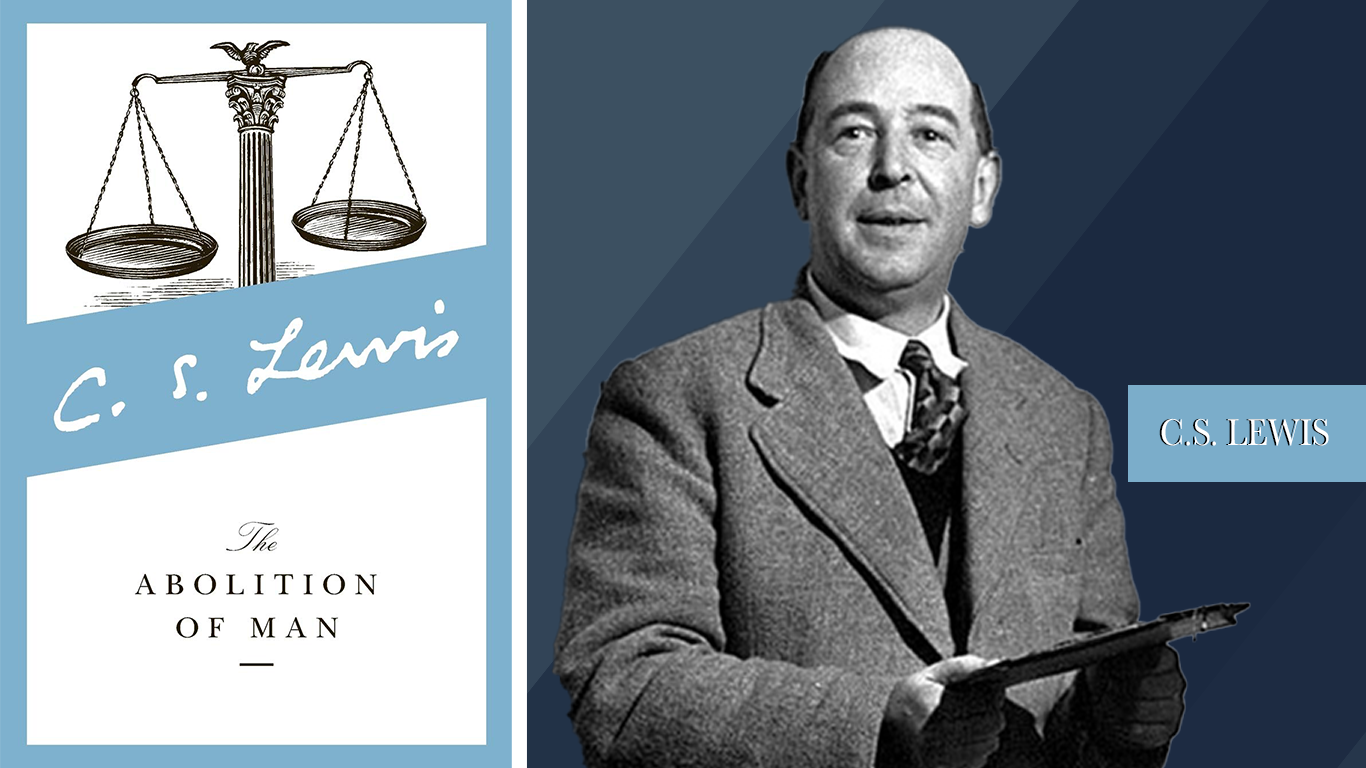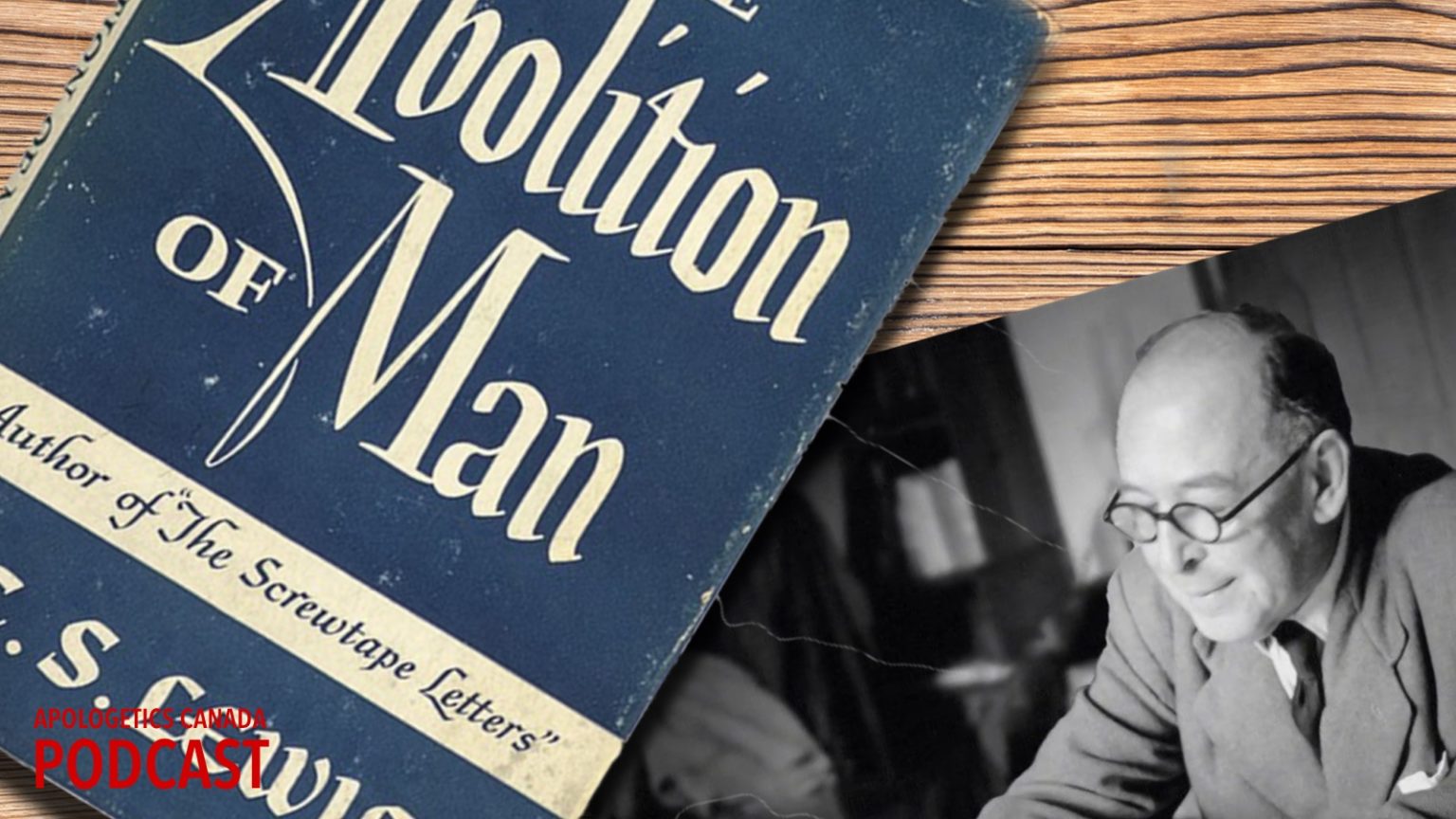Abolition Of Man Chapter 3 Summary
Abolition Of Man Chapter 3 Summary - The abolition of man (1943) a summary, followed by a brief summary by arend smilde see also “quotations & allusions in the abolition of man… Web in the abolition of man, c. What happens if man turns his back on the natural law? Initially a series of lectures, the work consists of three sections:. “the abolition of man” to conclude his argument, lewis examines the consequences of “man’s conquest of nature,” (59) or scientific progress. Web the effects of such a life are explored in the third section, “the abolition of man.” here lewis argues about the trajectory of man in the progression of science; “illustrations of the tao” to conclude the book, lewis presents an appendix consisting of a table of moral rules from various world cultures, with a brief preface. Web in the third and final lecture, “the abolition of man,” lewis considers what happens when people think of the tao as just one among many aspects of “nature” that humanity now has the power to conquer. Web chapter 3 themes and colors key summary analysis lewis argues that “the practical result of education in the spirit of the green book must be the destruction of the society which accepts it.” he sets out to. Web the abolition of man is a book written by c.s.
In this book, lewis argues that the decline of education is leading to the decay of human morality, which is in turn causing the destruction of humanity. Its full title is the abolition of man; Lewis is a philosophical book that argues for objective moral values. Lewis finds that what is characterized as human beings’ conquest over nature is often in reality a case of human beings using nature to gain power over other human beings. The abolition of man (1943) a summary, followed by a brief summary by arend smilde see also “quotations & allusions in the abolition of man… Web need help with chapter 1: Web below you will find the important quotes in the abolition of man related to the theme of nature, science, and the abolition of man. Lewis 29 pages • 58 minutes read c. They are also unburdened by the tao’s. Web the abolition of man is a book written by c.s.
His friend stated simply, “man has nature whacked.” What does modern man consider to be the summa bonum? a scientifically inspired control over nature. Lewis is a philosophical book that argues for objective moral values. Web the effects of such a life are explored in the third section, “the abolition of man.” here lewis argues about the trajectory of man in the progression of science; Web in the abolition of man, c. Eventually, man’s power over nature will be complete. Lewis finds that what is characterized as human beings’ conquest over nature is often in reality a case of human beings using nature to gain power over other human beings. The abolition of man (1943) a summary, followed by a brief summary by arend smilde see also “quotations & allusions in the abolition of man… Web conditioners will impose an artificial tao. Men without chests in c.
Pin on app games design
Lewis is a philosophical book that argues for objective moral values. What does modern man consider to be the summa bonum? a scientifically inspired control over nature. Web first published in 1943, the abolition of man by c. Summary of chapter 3 of the abolition of manby c.s. In this book, lewis argues that the decline of education is leading.
The Abolition Of Man Never Made Wall Art
Web below you will find the important quotes in the abolition of man related to the theme of nature, science, and the abolition of man. Its full title is the abolition of man; “the abolition of man” to conclude his argument, lewis examines the consequences of “man’s conquest of nature,” (59) or scientific progress. Summary of chapter 3 of the.
The Stuff of Legend Review The Abolition of Man
Web chapter 3 themes and colors key summary analysis lewis argues that “the practical result of education in the spirit of the green book must be the destruction of the society which accepts it.” he sets out to. Web what is the central question of chapter 3? Web in the abolition of man, c. The abolition of man provoked by.
Abolition of Man Summary PDF Objectivity (Philosophy) Reason
Eventually, man’s power over nature will be complete. Men without chests in c. Initially a series of lectures, the work consists of three sections:. Lewis, the abolition of man c. Web chapter 3 themes and colors key summary analysis lewis argues that “the practical result of education in the spirit of the green book must be the destruction of the.
[ACLE] 20210221 The Abolition of Man Apologetics Canada
Web the effects of such a life are explored in the third section, “the abolition of man.” here lewis argues about the trajectory of man in the progression of science; What happens if man turns his back on the natural law? Chapter 3 quotes each generation exercises power over its successors: Men without chests in c. Lewis finds that what.
“After Humanity A Guide to C.S. Lewis’s Abolition of Man” by Michael Ward
Web first published in 1943, the abolition of man by c. Lewis 29 pages • 58 minutes read c. Web need help with chapter 1: Or, reflections on education with special reference to the teaching of english in the. Men without chests in c.
Book Review The Abolition of Man Standing for Freedom Center
In this book, lewis argues that the decline of education is leading to the decay of human morality, which is in turn causing the destruction of humanity. The abolition of man (1943) a summary, followed by a brief summary by arend smilde see also “quotations & allusions in the abolition of man… What does modern man consider to be the.
The Abolition of Man Key Insights by Thinkr
Initially a series of lectures, the work consists of three sections:. The abolition of man (1943) a summary, followed by a brief summary by arend smilde see also “quotations & allusions in the abolition of man… Lewis finds that what is characterized as human beings’ conquest over nature is often in reality a case of human beings using nature to.
3819 to 3919 Fr. Andrew Cuneo Presents CS Lewis’s “Abolition of
They are also unburdened by the tao’s. “illustrations of the tao” to conclude the book, lewis presents an appendix consisting of a table of moral rules from various world cultures, with a brief preface. The abolition of man (1943) a summary, followed by a brief summary by arend smilde see also “quotations & allusions in the abolition of man… In.
The Abolition of Man A Conversation with Dr. Louis Markos
In the first paragraph, he begins to talk about how “man’s conquest of nature” is what describes. Its full title is the abolition of man; Lewis 29 pages • 58 minutes read c. In lewis’s view, today the small group of “conditioners”—those with power to shape other people at will—have unprecedented resources to impose upon nature and hence on other.
The Abolition Of Man (1943) A Summary, Followed By A Brief Summary By Arend Smilde See Also “Quotations & Allusions In The Abolition Of Man…
In the first paragraph, he begins to talk about how “man’s conquest of nature” is what describes. Web chapter 3 quotes each generation exercises power over its successors: Or, reflections on education with special reference to the teaching of english in the. His friend stated simply, “man has nature whacked.”
This Is, However, Another Way Of Saying That Man’s Power Over Man.
Its full title is the abolition of man; They are also unburdened by the tao’s. “the abolition of man” to conclude his argument, lewis examines the consequences of “man’s conquest of nature,” (59) or scientific progress. Web conditioners will impose an artificial tao.
Web Chapter 3 Themes And Colors Key Summary Analysis Lewis Argues That “The Practical Result Of Education In The Spirit Of The Green Book Must Be The Destruction Of The Society Which Accepts It.” He Sets Out To.
Web in the third and final lecture, “the abolition of man,” lewis considers what happens when people think of the tao as just one among many aspects of “nature” that humanity now has the power to conquer. “illustrations of the tao” to conclude the book, lewis presents an appendix consisting of a table of moral rules from various world cultures, with a brief preface. Summary of chapter 3 of the abolition of manby c.s. Eventually, man’s power over nature will be complete.
Men Without Chests In C.
What does modern man consider to be the summa bonum? a scientifically inspired control over nature. Lewis is a philosophical book that argues for objective moral values. Web the effects of such a life are explored in the third section, “the abolition of man.” here lewis argues about the trajectory of man in the progression of science; Lewis finds that what is characterized as human beings’ conquest over nature is often in reality a case of human beings using nature to gain power over other human beings.




![[ACLE] 20210221 The Abolition of Man Apologetics Canada](https://apologeticscanada.com/wp-content/uploads/2020/12/The-Abolition-of-Man.jpg)




